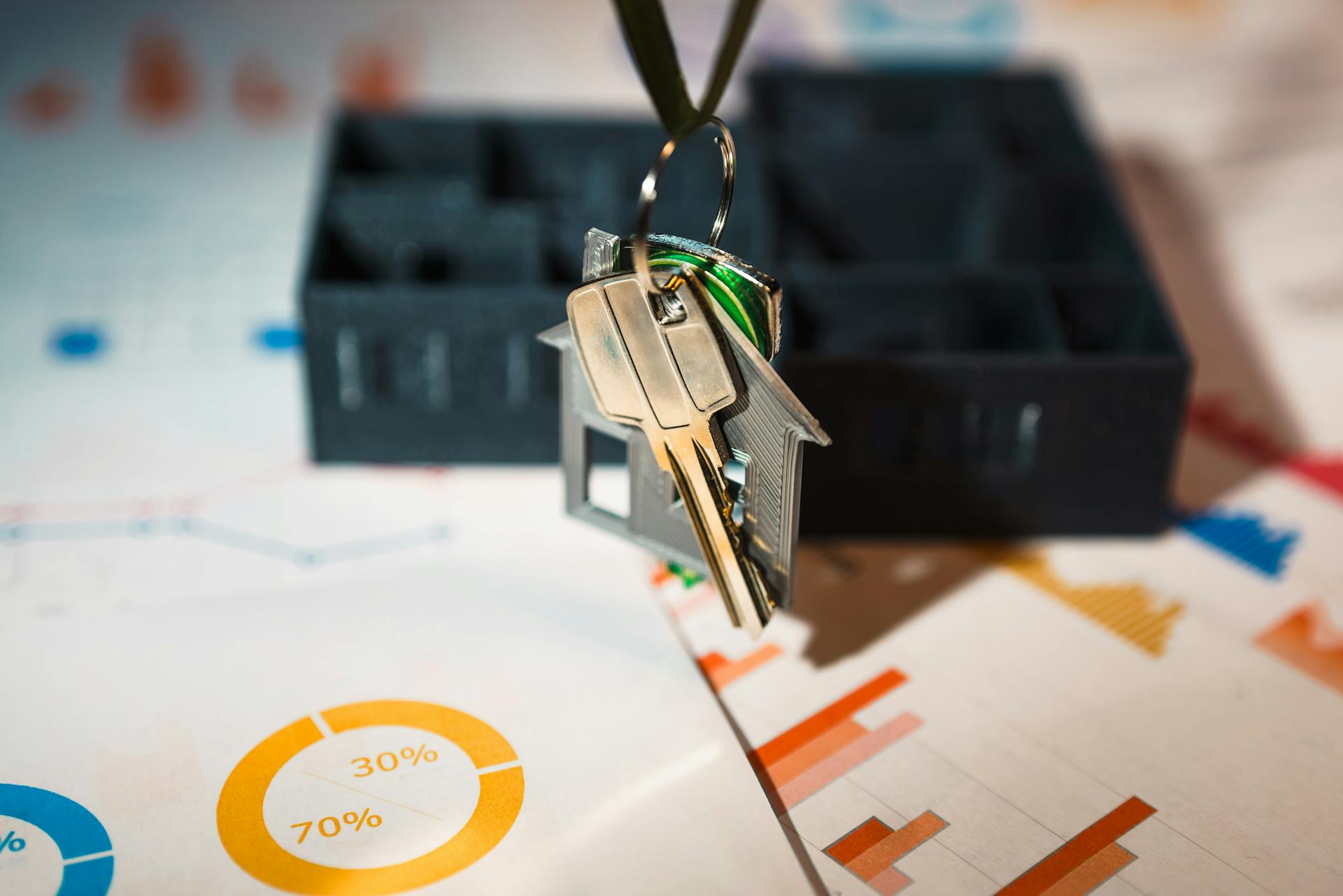
As a bank's compliance officer, you'll be responsible for ensuring the institution adheres to relevant laws and regulations.
Your primary role is to monitor and enforce compliance with anti-money laundering (AML) and know-your-customer (KYC) regulations, as well as other financial laws and regulations.
Compliance officers are also responsible for implementing and maintaining policies and procedures to mitigate risks and prevent financial crimes.
They must stay up-to-date with changing regulatory requirements and ensure the bank's operations are in line with these changes.
Regulatory Knowledge
Regulatory knowledge is a crucial aspect of a bank compliance officer's role. They need to know which laws and regulations apply to their organization's practices, and stay current with updates and changes to these policies.
Compliance officers can earn certifications through credentialing bodies in their field, which demonstrates their expertise and commitment to regulatory knowledge. This is essential for a bank compliance officer, as they work with financial and lending institutions to ensure compliance with relevant regulations, laws, and policies.

Here are some key regulatory areas a bank compliance officer should be familiar with:
- Legislation related to credit card accountability and responsibility
- The Federal Reserve
- Truth in lending
These areas of regulation are critical for bank compliance officers to understand, as they impact the financial and lending activities of their organization. By staying up-to-date on regulatory knowledge, bank compliance officers can ensure their organization is in compliance with relevant laws and regulations.
Tracking Regulatory Changes
Tracking regulatory changes is a crucial aspect of a compliance officer's job. To stay on top of these changes, compliance officers need to know which laws and regulations apply to their organizations' practices.
Compliance officers must stay current with updates and changes to these policies, which can be a daunting task. In the United States, banking compliance officers, for example, need to stay informed about legislation related to areas like credit card accountability and responsibility, the Federal Reserve, and truth in lending.
To navigate these changes, compliance officers can use compliance management software, which allows them to monitor and document compliance activities based on multiple regulations and standards. This technical knowledge is essential for compliance officers.
Compliance officers also need to be able to analyze data to assess and report on compliance. They must have the technical savvy to use applicable tools for data analysis and analytical skills to interpret those findings.
To keep track of regulatory changes, compliance officers can earn certifications through credentialing bodies in their field. This will help them stay up-to-date with the latest laws and regulations.
Surveillance
Surveillance plays a critical role in detecting misconduct, such as market abuse, across Deutsche Bank.
Advanced technologies enable trade, eCommunication, and voice surveillance capabilities, allowing analysts to analyze global business lines.
The surveillance process constantly evolves with new risks emerging and new technologies being deployed.
Analysts require a deep understanding of the bank's business strategies to effectively disposition alerts.
Surveillance works closely with the Business, Business Line Compliance, and Technology functions across Deutsche Bank.
Ongoing investment in the strategic programme focuses on the evolution of surveillance, leveraging technologies like speech-to-text transcription and data analytics.
A leading team of technologists collaborates on the programme, using machine learning techniques to increase the effectiveness and efficiency of identifying potential problematic behaviour.
CT&A Controls
CT&A Controls play a crucial role as a 2nd line of defence function, providing independent feedback on the adequacy of controls related to Compliance and Financial Crime Risks.
Deutsche Bank relies on CT&A to ensure the effectiveness of its controls, which is essential for managing critical risks to the bank.
CT&A is responsible for testing and assurance, giving them a unique perspective on the bank's control environment.
By providing independent feedback, CT&A helps Deutsche Bank identify and address potential weaknesses in its control framework.
Career Development
As a bank compliance officer, you'll have the opportunity to work in a dynamic field with many opportunities to develop and make a difference. Financial examiners, including bank compliance officers, experience slower than average growth rates between 2012 and 2022.
To advance in your career, it's essential to have professional experience. Compliance officers can earn degrees in areas like accounting, business, and finance to enter the field. This can lead to promotions and senior-level roles.

With experience, you can also consider additional education, such as a master's degree, to further your career. Certifications like those offered through groups such as the Society of Corporate Compliance and Ethics, the National Association of Federal Credit Unions, and the American Bankers Association can also help you land advanced positions.
As a compliance officer, you'll have the chance to work on complex reviews and contribute to the enhancement of processes and controls in your bank. This can be a rewarding experience, as compliance officers can expect an interesting job where no two days are the same.
To give you a better idea of what to expect, here are some key points to consider:
- Bank compliance officers monitor a bank's financial practices, lending, record-keeping, and transactions.
- Compliance officers can earn degrees in areas like accounting, business, and finance to enter the field.
- Certifications like those offered through groups such as the Society of Corporate Compliance and Ethics can help you land advanced positions.
Job Description
A bank compliance officer's primary responsibility is to ensure the bank operates in full compliance with legal regulations and industry-specific guidelines. They monitor internal policies and bylaws to prevent regulatory risks and misconduct.
One of the key duties of a bank compliance officer is to develop and implement policies and procedures. This involves creating organizational policies and procedures using knowledge of applicable laws and regulations, and disseminating this information to other employees as needed.

A bank compliance officer's role is multifaceted, and they often act as a liaison between the bank and overseeing bodies, such as regulating agencies and government authorities. They also serve as the point of contact between employees and managers about misconduct.
Some common duties of a bank compliance officer include monitoring compliance, identifying potential risks, and educating and training employees about rules and regulations. They perform audits and research institutional practices to ensure the bank complies with legal and ethical guidelines.
Here are some key responsibilities of a bank compliance officer:
- Develop and implement policies and procedures
- Monitor compliance and identify potential risks
- Act as a liaison between the bank and overseeing bodies
- Educate and train employees about rules and regulations
Employment and Salary
Financial examiners, including bank compliance officers, can expect a decent salary.
The average annual salary for financial examiners is around $87,000, according to the BLS.
In May 2014, the top 10% of financial examiners made about $146,000 a year, while the bottom 10% earned nearly $44,000.
Compliance officer jobs are expected to grow 6.2% from 2020 to 2030, resulting in 30,000 annual job openings.
Federal, state, and local agencies are the top employers of compliance officers, while pipeline transportation of crude oil and information services offer the highest average salaries.
The District of Columbia, New Hampshire, and New Jersey have the highest average salaries for compliance officers, ranging from $91,520 to $98,740.
Professional Qualities
A good bank compliance officer is well-versed in the rules and regulations of the banking industry, which requires a strong work ethic. They take responsibility in the workplace, model compliance, and respect their colleagues.
To be effective, compliance officers must have strong critical thinking skills, which involve assessing guidelines and applying them to practices within organizations. They identify relevant rules and regulations and execute implementation measures.
In addition to technical skills, compliance officers need to possess soft skills such as problem-solving, leadership, and interpersonal skills. They use these skills to communicate and enforce compliance policies and practices, and to mitigate and eliminate risks of noncompliance.
Here are some key soft skills for bank compliance officers to possess:
- Critical Thinking: Assessing guidelines and applying them to practices within organizations.
- Problem-Solving: Mitigating and eliminating risks of noncompliance.
- Leadership: Serving as a model for compliance and communicating effectively with others.
- Work Ethic: Taking responsibility in the workplace and respecting colleagues.
Key Soft Skills
Critical thinking is essential for compliance officers to assess guidelines and apply them to practices within organizations. They need to identify relevant rules and regulations and execute implementation measures.
Problem-solving is a crucial skill for compliance officers to mitigate and eliminate risks they find. This involves analyzing contributing factors, creating interventions, and assessing solutions' efficacy.

Leadership is a vital aspect of a compliance officer's role. They must serve as a model for compliance in an organization, being direct and assertive while remaining positive and following the rules. They share information with others in a clear, convincing manner.
A strong work ethic is also necessary for compliance officers. This involves taking responsibility in the workplace, modeling compliance, and respecting colleagues. Compliance officers must complete their duties in a timely fashion to ensure their companies avoid compliance issues.
Here are the key soft skills for compliance officers in a concise list:
- Critical thinking
- Problem-solving
- Leadership
- Work ethic
What Makes a Good?
A good compliance officer is well-versed in the rules and regulations of their industry. They must have a deep understanding of regulatory knowledge, which involves knowing which laws and regulations apply to their organizations' practices.
Compliance officers need to be detail-oriented and use interpersonal skills to communicate and enforce compliance policies and practices. This involves adapting jargon and industry-specific language to communicate effectively with employees and managers.

To be effective, compliance officers must have strong critical thinking skills, which enable them to assess guidelines and apply them to practices within organizations. They must also be able to identify relevant rules and regulations and execute implementation measures.
Good compliance officers are problem-solvers, able to mitigate and eliminate risks they find by analyzing contributing factors, creating interventions, and assessing solutions' efficacy. They must also be able to lead by example, serving as a model for compliance in an organization.
Compliance officers need to have a strong work ethic, taking responsibility in the workplace, modeling compliance, and respecting colleagues. They must complete their duties in a timely fashion to ensure their companies avoid compliance issues.
Here are some key soft skills for compliance officers:
- Critical Thinking: assessing guidelines and applying them to practices within organizations
- Problem-Solving: mitigating and eliminating risks, analyzing contributing factors, creating interventions, and assessing solutions' efficacy
- Leadership: serving as a model for compliance, being direct and assertive while remaining positive and following the rules
- Work Ethic: taking responsibility, modeling compliance, and respecting colleagues
Frequently Asked Questions
Is Compliance Officer a hard job?
Yes, being a Compliance Officer can be a challenging job due to its critical and demanding nature. It requires a delicate balance between professional obligations and personal life, making it a unique and potentially demanding career path.
Sources
- https://www.grip.globalrelay.com/the-grip-files-mark-taylor-ibex-compliance/
- https://www.consumercomplianceoutlook.org/2023/first-issue/common-challenges-of-community-bank-compliance-officers
- https://careers.db.com/explore-the-bank/business-overview/Infrastructure/compliance
- https://learningpath.org/articles/Bank_Compliance_Officer_Career_Overview.html
- https://www.accounting.com/careers/compliance-officer/
Featured Images: pexels.com


